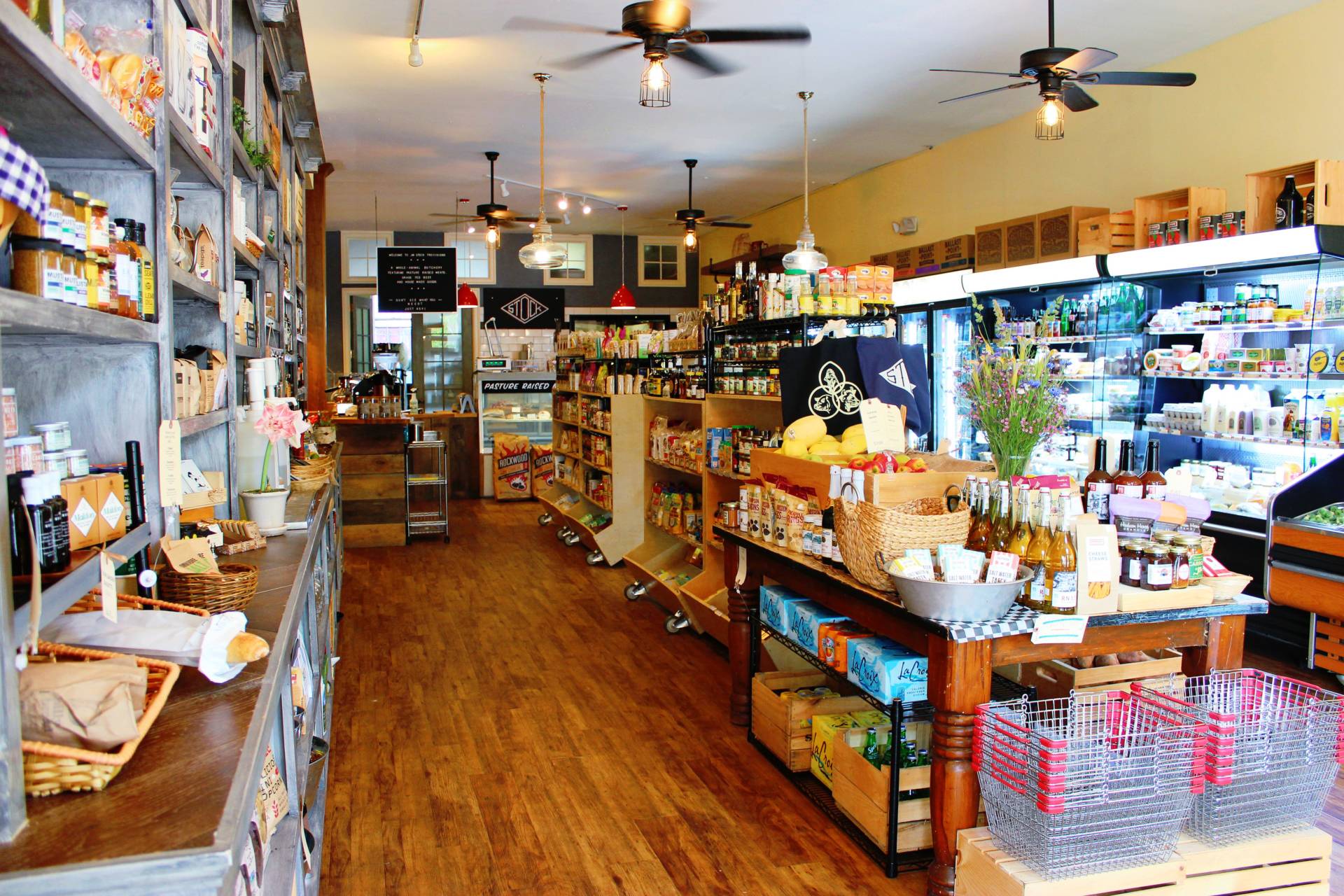 Photo by Stock Provisions
Photo by Stock Provisions I used to enjoy grocery shopping as a pleasant, even relaxing diversion. It was a break from work, a chance to run into friends from shul, even a chance to think. But now, with almost every purchasing decision fraught with environmental, social and politically correct decisions, grocery shopping is stressing me out.
Cereal makers boast about using deforestation-free palm oil and using recycled cardboard to manufacture their boxes. Should I sleep better at night knowing my Cheerios box was reincarnated from a lasagna box?
Aiming for a socially responsible and culinarily diverse diet, I buy Cheerios and “Quinoa Krispies,” a concoction that includes whole, hard-to-digest grains, seeds, nuts and twigs. Are those twigs? If not, there’s an uncanny resemblance.
I admire the earnestness of the entrepreneurs named Lou or Annie who make “do-gooder” foodstuffs. They live in places such as Eugene, Ore., and stamp their own fresh-faced images on the packaging. They wax rhapsodic about their cookies or crackers and of their passion for steel-cut oats, sprinkling a few philosophical bromides to the mix. Although my family categorically rejected these creations, I discovered that some of them, when tossed into the blender with a hint of filtered water, made an excellent substitution for spackling paste, though it dulled the blade something awful.
You no longer need to patronize Whole Foods for virtuous shopping. Virtually all supermarkets today sell fair-trade coffee, locally grown organic produce, wild-caught seafood with sustainability ratings, recycled bath tissue paper that promises green revolutions whose packaging features exclamation marks (so you know they mean it) and compostable dog toys, the better to reduce your pet’s carbon paw-print.
Great. Now, not only do I need to look for reliable kosher hechshers, but also “Ethical Accreditation” seals of approvals as if my pasta went to college.
“The more earnest the messaging on the product, the more expensive it probably is.”
I respect the desire to eat healthfully and live sustainably, but all these exhortations wear me out. I don’t need my brand of milk or eggs to change the world. I just want to eat my twiggy cereal and drink my fair-trade coffee at breakfast in peace. Give peace a chance!
Besides, shopping for foods that are politically, socially, environmentally and gastronomically correct remains an unsustainable practice for people of middle-class means. The more earnest the messaging on the product, the more expensive it probably is. For example, on a six-ounce package of whole-grain crackers, Lou promised that his crackers were made “with love” and that he is utterly committed to a better relationship with the planet. He wants to make crackers that matter! For twelve bucks a pound, they should matter! I can buy fresh salmon for that kind of money!
Last week, I went to Whole Foods because my Chinese acupuncturist wants me to eat sprouted mung beans, still unavailable at my regular supermarket or my kosher market. A sign by Whole Foods’ produce section proclaimed, “The more you know, the better.”
Wrong! When shopping becomes an exercise in competing socio-political sloganeering, the more you know, the more your brain cells want to implode. Spare me the biodiversity rating of every bunch of broccoli, the bioavailability of every vitamin, or the fact that the organic oranges were trucked from only 30 miles away. I’ll take the cheaper, non-organic oranges that were trucked from 150 miles away, trying to ignore the guilt-trip implied by the banner shouting, “Grown locally for reduced fossil fuel consumption!” As my Nana would have said, “Stop dreying my kop!”
And have you ever wondered why the fewer ingredients a product has, the more it costs? A new brand of organic spices at Whole Foods required a small billboard to list what the spices don’t include, such as sugar, preservatives, corn starch, gluten, tree nuts, wheat, gluten or polyester. Reading the sign, I felt a case of gluten-intolerance coming on.
I consider myself an enlightened consumer. I have a soft spot for spunky and earnest entrepreneurs who are devoting their lives to making meaningful carbohydrates. But sometimes, I pine for the good old days, when food shopping was simpler, and I didn’t have to shop till I dropped.
Judy Gruen is the author of “The Skeptic and the Rabbi: Falling in Love With Faith” (She Writes Press, 2017).























 More news and opinions than at a Shabbat dinner, right in your inbox.
More news and opinions than at a Shabbat dinner, right in your inbox.